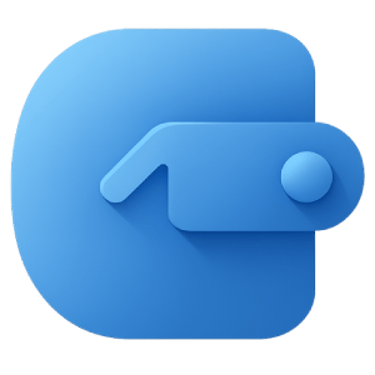The Five Books That Will Change How You Think About Money
"Money is a terrible master but an excellent servant." — P.T. Barnum
12/10/20243 min read


Personal finance is the bedrock of freedom—freedom to live without worry, freedom to pursue opportunities, freedom to give generously. Yet, most people are never taught how to handle money effectively. They muddle through life, hoping the numbers work out in the end. Thankfully, we don’t have to reinvent the wheel. These five books, crafted by experts who've walked the walk, provide a masterclass in financial literacy. Let me break down why each one is indispensable.
1. "The Total Money Makeover" by Dave Ramsey
Let’s start with a no-nonsense powerhouse. Dave Ramsey doesn’t sugarcoat it: financial freedom begins with discipline. The Total Money Makeover is for those who are tired of drowning in debt and ready to take their first steps toward financial health.
What You’ll Love:
Ramsey's "baby steps" are a game-changer. From building an emergency fund to smashing debt with the snowball method, these are straightforward and effective strategies.
Real-life success stories pepper the pages, offering proof that this method works.
My Take: It’s a financial boot camp in a book. Perfect for those starting out or feeling overwhelmed by debt. That said, Ramsey's rigid approach may not fit every situation. Use it as a starting framework, and adapt as you grow.
2. "Rich Dad Poor Dad" by Robert Kiyosaki
This book doesn’t teach you how to budget or save; it changes how you see the entire financial game. Kiyosaki’s distinction between assets and liabilities is the cornerstone of building lasting wealth.
What You’ll Love:
The storytelling is engaging and digestible, making complex ideas like passive income feel accessible.
It shifts your mindset from "work hard, save harder" to "work smart, invest smarter."
My Take: The beauty of Rich Dad Poor Dad lies in its ability to flip the script. But here’s the catch—don’t expect a detailed manual. It’s more philosophy than playbook. You’ll need to fill in the gaps with other resources.
3. "The Millionaire Next Door" by Thomas J. Stanley and William D. Danko
If you believe millionaires are all driving luxury cars and living in mansions, this book will blow your mind. Stanley and Danko reveal that most wealthy people are modest, disciplined, and far from flashy.
What You’ll Love:
The data. This isn’t anecdotal fluff; it’s rooted in extensive research.
It’s empowering to see that wealth is accessible to anyone willing to prioritize savings and avoid lifestyle inflation.
My Take: This book is an antidote to consumerism. However, its academic tone may feel dry for some. Read it slowly, digest the insights, and start implementing small, frugal habits.
4. "I Will Teach You to Be Rich" by Ramit Sethi
This is where personal finance gets a facelift. Ramit Sethi’s approach is bold, unapologetic, and refreshingly modern. He’s not interested in making you feel guilty about buying lattes—he’s here to show you how to live your "rich life" while still building wealth.
What You’ll Love:
Sethi lays out a holistic strategy: automating savings, optimizing credit cards, and investing smartly in index funds.
The tone is playful and conversational—ideal for younger readers or those overwhelmed by traditional advice.
My Take: This book is perfect for the digital generation. If you’re ready to implement systems that let you focus on living, not budgeting, this is your guide. But be warned: Sethi’s confidence can come across as arrogance. Don’t let that deter you; his advice is rock solid.
5. "Your Money or Your Life" by Vicki Robin and Joe Dominguez
Here’s where things get philosophical. Your Money or Your Life doesn’t just teach you how to save; it forces you to evaluate the role of money in your life. This is a book for those ready to transform their relationship with money.
What You’ll Love:
The concept of the "real hourly wage" is eye-opening—it makes you rethink every dollar you spend.
The focus on financial independence aligns money with what truly matters in life.
My Take: This is a soul-searching read, not a quick fix. It’s ideal for those seeking meaning beyond material wealth. But fair warning: the depth of reflection it demands might feel overwhelming to those looking for immediate solutions.
Final Thoughts: The Right Book for You
The best personal finance book isn’t necessarily the one with the most insights—it’s the one that resonates with your current situation.
Drowning in debt? Ramsey’s The Total Money Makeover is your survival guide.
Curious about wealth-building mindsets? Rich Dad Poor Dad is a must.
Want proof that frugality breeds success? Start with The Millionaire Next Door.
Looking for a modern, actionable plan? Sethi’s I Will Teach You to Be Rich is unbeatable.
Yearning for a deeper connection between money and purpose? Robin’s Your Money or Your Life will reshape your financial philosophy.
In the end, these books aren’t just about money—they’re about freedom, choices, and living a life of intention. Your journey begins with turning the first page. Choose wisely and take the leap. Financial independence is waiting.
Manage your expenses effortlessly with AI. Track spending via voice, photos, and personalized strategies to save time and money.
Contacts
+84857001789
© 2024. All rights reserved.
